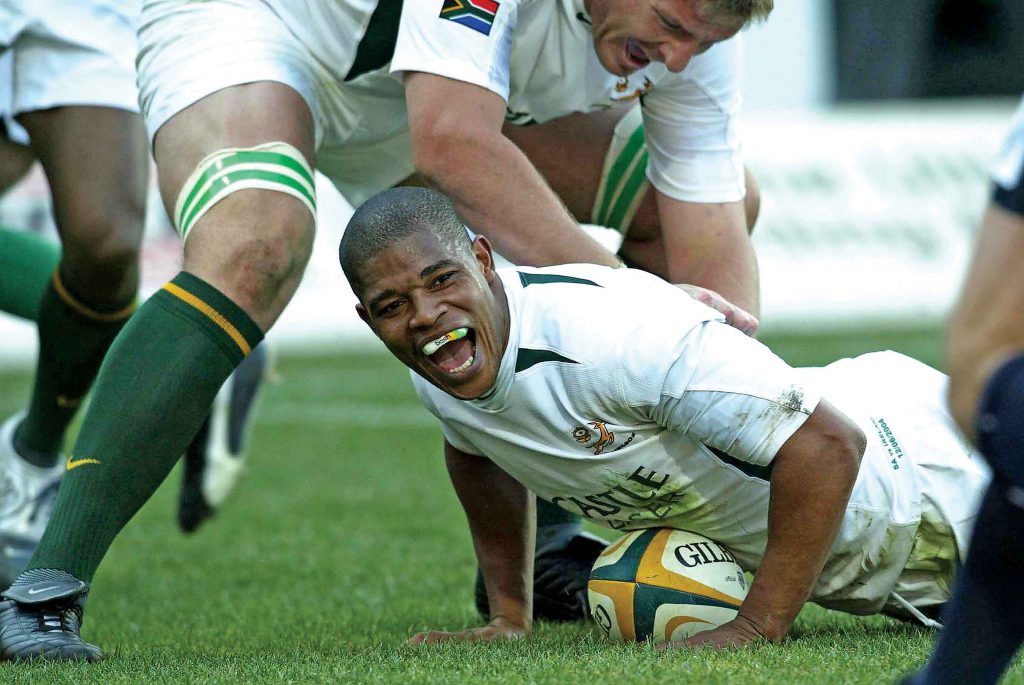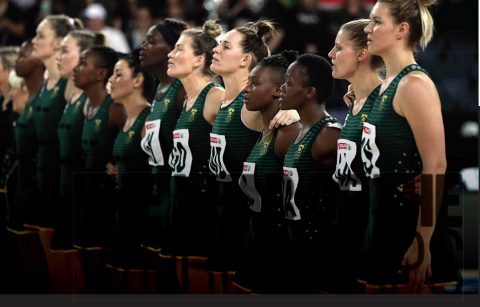Business Day Business Of Sport
Life After The Try
Not many rugby players make their international debut at the World Cup. Normally only the best of the best, the tried and tested, are selected for the sport’s showpiece event.
You have to be a pretty special talent to be selected for a World Cup without a single minute of senior international rugby. It’s even more impressive if it happens before your 21stbirthday.
Nick Mallett selected centre Wayne Julies for the 1999 World Cup with only a handful of provincial matches for Boland under his belt and a few matches playing for the Junior Springboks. Two years before that, Julies was still sitting in the benches of Charleston Hill Secondary, a school located close to a gang-infested part of the picturesque Boland town of Paarl.
After making his debut in the Boks’ win against Spain at the World Cup, the sky was the limit for the centre with one of the sweetest passes in South African rugby.“I celebrated my 21stbirthday during the tournament. It was a great present making the World Cup squad, a couple of months after winning the Under-21 World Cup,” Julies recalls.
“I was one of four black players in the 30-man squad and it was an incredible feeling to be there.”
Julies, though, didn’t quite have the international career he envisaged, because of a series of knee injuries. He still finished with quite a decent résumé, having played another eight tests for the Springboks and was part of Jake White’s 2007 World Cup-winning team. He also won the Super Rugby title with the Bulls in that same year.
Life after the game
Julius retired from all rugby in 2010 after 11 years in the limelight, but unfortunately for him the light faded faster than he could imagine as a couple of failed business ventures during his playing days left him with almost no money for life after rugby. “Everybody looks at professional rugby players and thinks ‘he gets big money’. The big contracts are there, but it’s only for a select few,” Julies says.
“The opportunities are there to make money, don’t get me wrong. But you have to make the right decisions. I started two businesses, a FotoFirst and a gym, and both failed. I wasn’t hands-on, because I played rugby outside of Paarl. I trusted people to run those businesses for me, and it didn’t end well. When you’re playing rugby, you don’t think about the future, because of the hyped life. You’re always on television and people want to be around you. You end up falling into a bit of trap, and it was tough when that life ended and reality started to look me in the eyes.”
Isma-eel Dollie, the national player relationship manager at MyPlayers, which is the South African professional players’ organisation, says there are many other former Springboks who have fallen on hard times because of a failure to plan for the future. “We have got to ask if there is enough planning for life after rugby, because when you are in that professional space you don’t really look ahead,” says Dollie, who is also a former Western Province and Stormers flyhalf.
“Professional players get treated like gods and get paid handsomely, but there isn’t that foresight to look at life after rugby in terms of saving. Players are only one ruck away from a career-threatening injury, and they only realise that when they are in that situation.”
Getting it right
Dollie, though, says MyPlayers is trying to address this problem by educating players from a young age. It has teamed up with the respective rugby unions around the country to try and remind players that rugby is a short career. “As a players organisation, we are working with the unions to look at life after rugby,” he says.
“But players also make the time to empower themselves. Look at a guy like Chris van Zyl (Stormers lock), who has a couple of degrees under the belt and runs his own business. It can be done with a little hard work and dedication.”
Julies has certainly learned those hard lessons before it was too late. He managed to get his life together and is working for the Western Cape Department for Sport, helping school kids from poor neighbourhoods in Paarl also rise above their circumstances. Much like he did.
“This gives me, a boy who grew up in the flats in Paarl, a chance to work with kids in the community. For me to give back to kids from poorer communities is what I really enjoy.”






 Sign-up and receive the Business Media MAGS newsletter OR SA Mining newsletter straight to your inbox.
Sign-up and receive the Business Media MAGS newsletter OR SA Mining newsletter straight to your inbox.